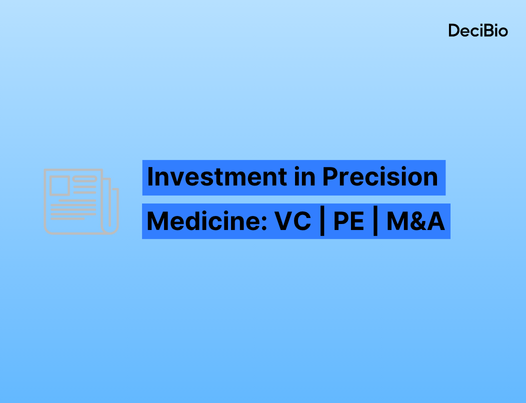

Is Logic Gating the Next Step for Cellular Therapies? ArsenalBio Thinks So.
Cell therapies is a space that DeciBio has been tracking and mapping for several years. From our TheraTrack platform, the field is ripe with the number of active clinical trials growing at over 20% per annum in the last 3 years! While there has been a concerted investment into allogeneic approaches, several companies are doubling down on autologous therapies to try and impart superior efficacy in patients. Fresh off of the heels of announcing an expanded partnership with Bristol Myers Squibb (BMS) to commercialize a new approach to programmable cellular therapies, ArsenalBio is going full speed to translate a deep well of expertise into clinical trials in 2022. ArsenalBio has been positioning itself as cell therapy 2.0 compared to traditional bespoke CAR-T cell therapies (gen. 1.0) by focusing on using CRISPR-based genomic engineering, synthetic biology and data science to scale target identification and include multiple therapeutic modules in a single cell therapy to address the safety, potency and persistence limitations of gen. 1.0 therapies. I had the chance to chat with ArsenalBio’s CTO, Tarjei Mikkelsen, about his thoughts on the future of cellular therapies and ArsenalBio’s role within it.
While many first generation FDA approved cellular therapies were autologous (e.g. Kymriah), there is currently robust interest in allogeneic “off the shelf” therapies for their potential benefits relating to manufacturing and delivery. Where do you think the cell therapy space is going and how is ArsenalBio trying to address that?
Our goal at ArsenalBio is to develop cell therapies that can cure solid tumors. Previous efforts in the space have shown that simply targeting cells to a solid tumor through a CAR or TCR is unlikely to be enough to reliably achieve this goal. There are myriad suppressive pathways, resistance mechanisms and tumor-target liabilities that can hinder solid tumor therapies. We are developing a library of DNA-encoded modules that program immune cells to overcome each of these challenges. We’re evaluating these modules in autologous T cells first, because those have already been shown to provide long-lasting, and in some cases curative, responses in more tractable liquid tumors. This strategy allows us to focus on developing safety-, potency- and persistence-enhancing modules for T cell therapy without the added complexity of allogeneic graft vs. host interactions, which the field has yet to overcome. We are, however, ultimately agnostic to the cell “chassis”. Our synthetic modules can be adapted to other cell types like iPSC-derived cells, allogeneic T cells and NK cells as needed. Whatever cell type turns out to be the most effective and practical chassis for future cell therapies will likely still need multiple synthetic enhancements to overcome the challenges presented by solid tumors.
As more specialization is required in the space, and more companies are developing CAR-T products, what is ArsenalBio doing to differentiate itself?
First and foremost, we believe that developing best-in-class cellular therapies requires strong and long-lasting collaboration across a highly multidisciplinary and diverse team. Over the past three years, over 200 uniquely talented scientists, engineers, clinical and manufacturing specialists and cell therapy industry veterans have come together to contribute to ArsenalBio’s ambitious mission. Their combined skills and knowledge have allowed us to not just onboard sophisticated immune cell engineering technologies and assays from multiple world-class academic institutions, but also to extend and improve upon those approaches to develop novel product compositions and processes within the company itself.
Together, the ArsenalBio team has built an internal discovery platform with industry-leading high-throughput screening capabilities for primary T cells. This platform allows us to evaluate and compare the vast space of possible product compositions in a much more systematic and comprehensive manner than what has previously been done in the field. And perhaps just as importantly, it sets us up to rapidly iterate on our initial compositions and processes based on clinical feedback.
ArsenalBio has taken a different route from most other engineered cell therapies by using a non-viral delivery mechanism. How does this compare to viral transduction?
Building on the seminal work of our co-founders Alex Marson, Theo Roth and their colleagues, ArsenalBio has developed an electroporation- and CRISPR-based cell engineering process that can efficiently deliver over 10 kb of synthetic DNA to a single locus in the T cell genome. That is almost three times the practical payload capacity of viral vectors in clinical use, which gives us the ability to combine multiple, complementary therapeutic modules into a single product composition, and then deliver that via a single integration event per cell. We target a novel safe harbor site that is well-suited to supporting the function of the modules, while minimizing off-target editing and unwanted interactions with endogenous genes. This allows us to generate a more homogeneous and precisely controlled cell product than what can be achieved with randomly-integrating, viral delivery mechanisms, while at the same time delivering more complex therapeutic programming to the cells.
Two other important advantages are that we can make full use of the ongoing revolution in long DNA synthesis to rapidly make any library of new modules we would like to test, and we can use very similar processes for both R&D- and clinical-scale cell production. This allows us to run a rapid design-build-test cycle where we systematically analyze thousands of engineered cell populations in parallelized functional and molecular assays, and then scale up the most promising leads for pre-clinical and clinical development with reduced tech transfer risk.
Let’s talk about function a bit. First, can you describe the role tissue targeting plays, what aspects you think are most important moving forward, and where ArsenalBio’s work fits into that?
One of the key challenges in developing CAR-T cell therapies is that these engineered cells can be extremely effective at killing cells that express the CAR target, but at the same time there are very few known targets on solid tumors that are truly absent from all healthy tissues. This can create narrow therapeutic windows where it is difficult to find a dosing regimen that is both effective and safe.
ArsenalBio is addressing this challenge by taking inspiration from the lab of Kole Roybal, who is also a scientific founder of the company. We have developed a novel logic gate module that programs T cells to only express the tumor-targeting CAR once a constitutively-expressed priming receptor has bound to a different target. Importantly, the priming and CAR targets need to be present in the same tissue microenvironment, but not necessarily on the same cells, for the engineered T cells to be activated. This logic gate allows us to consider CAR targets that are not necessarily unique to the tumor, as long as the combined expression of the priming and CAR targets are. We expect this will increase specificity and widen therapeutic windows relative to conventional CAR-T cells.
This kind of brings it back to efficacy. How does those functions help in that respect and what else is driving the cancer killing power of these cells?
One other interesting feature of the logic gate is that the CAR is not expressed during ex vivo expansion. This might be helpful for avoiding undesirable tonic signaling from some CARs and for biasing the cell product towards less differentiated phenotypes, although I would say the relationship between product phenotypes and efficacy is still an area of active research.
Beyond realizing the benefits of logic-gated CARs, our large payload capacity allows us to combine that CAR with multiple other modules that further enhance efficacy through complementary mechanisms of action. This can include shRNA modules that rewire pathways to enhance the proliferative capacity of activated T cells or reduce sensitivity to specific immunosuppressive signals. We are evaluating both of these types of modules in our first therapeutic program. Other possibilities include expressing cell-bound or secreted signaling molecules that help remodel the tumor microenvironment for a more favorable response. In principle, we can program T cells to secrete any DNA-encoded molecule in an antigen-dependent manner, effectively turning the engineered cells into tumor-localized drug factories.
Putting that all together, what is on the horizon? What is ArsenalBio hoping to do next?
I believe ArsenalBio will be the first company to bring a CAR-T cell therapy with a logic gate and multiple other synthetic enhancements, what we refer to as an integrated circuit T (ICT) cell, into clinical development. Our first program targeting ovarian cancer is on track to begin by the end of 2022. We’ve also recently expanded our partnership with BMS to encompass two active programs in other solid tumor indications. Thanks to our interdisciplinary team and highly scalable discovery platform, this is only the beginning. I expect 2022 will be a big year for us, with quite a few additional announcements.





.png)

.png)


